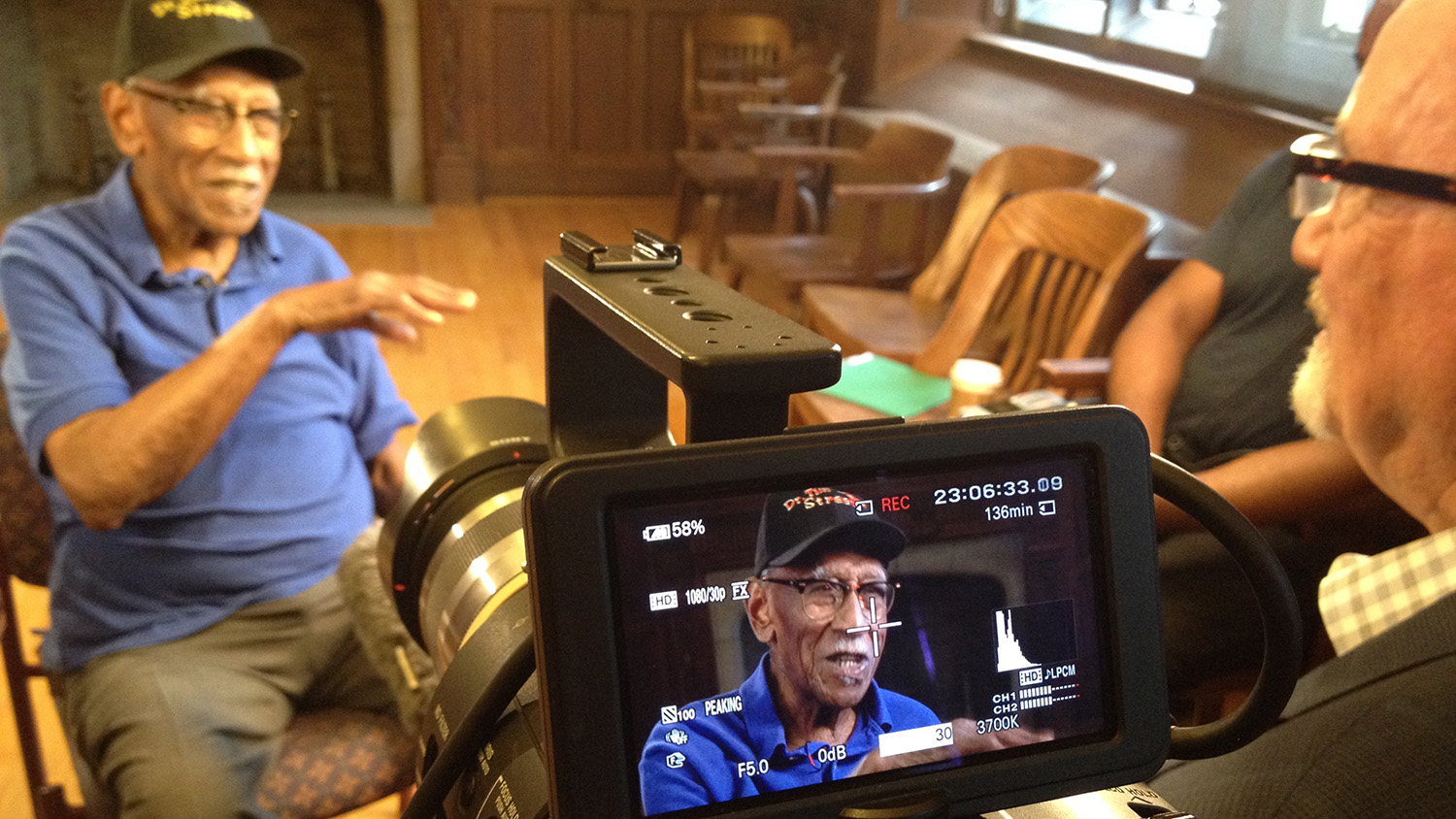Reflection of a Legacy

Renowned linguist Walt Wolfram, the William C. Friday Distinguished Professor of Linguistics at NC State University, and other leading scholars have studied African-American speech across the nation as a distinct dialect of American English for five decades.
Now, they’re sharing their findings in an hourlong documentary titled Talking Black in America: The Story of African American Language, produced by the Language and Life Project at NC State and premiering on campus this month.
“The goal is to make the public aware of the legitimacy and authenticity of language differences often associated with African-Americans,” said Wolfram, the documentary’s executive producer. “When people are identified ethnically, their language is subordinated and stigmatized. As linguists, we respect and cherish all language. It’s all patterned. It’s all systematic.”
Wolfram has authored books and, with co-producers and co-directors Neal Hutcheson and Danica Cullinan, produced a number of documentaries exploring language and dialect, including the Emmy-winning film First Language: The Race to Save Cherokee. Talking Black in America, he said, is a first-of-its-kind documentary.
“Nobody has ever done a documentary focused on African-American English, which is ironic because it’s the most controversial, the most studied and the most prominent non-mainstream dialect in American English,” he said.
Talking Black in America explores how language and speech manifest in the everyday lives and experiences of African-American English speakers. Wolfram described the film as “a flow between everyday people talking and performing and scholars who carry the narration and explain things.”
Wolfram and other researchers traversed the nation — talking to people in cities such as Charleston, South Carolina; Oakland, California; New York; Chicago; Atlanta; and Detroit — and even the Caribbean for the documentary.
“We also went to rural Mississippi because a lot of African-American speech in Northern cities is derived from the South,” he said. “So if we’re going to look at Detroit and Chicago, then we have to look at the rural South.”
Millions of African-Americans left Southern states like Mississippi for Northern, Midwestern and Western cities during the Great Migration in the 20th century. In destination cities, African-Americans — who brought with them Southern speech — were often segregated in predominantly or exclusively black neighborhoods.
“It’s significant because in a segregated context like this, you can have a language that is developing on its own and becoming more diverse rather than more like white varieties,” he said. “The segregation of the North, which was technically de facto, really was a fertile environment for African-American English development as a variety that’s different from white speech.”
The construct of tying speech to ethnic identity developed during this period, according to Wolfram.
“In the South 100 years ago, African-Americans and whites didn’t necessarily talk the same, but nobody was concerned about whether you’re talking white or black,” he said.
Although the documentary addresses some of the controversy surrounding the dialect, Wolfram said the focus is “celebrating the great tradition of African-American speech.”
“The fact of the matter is African-American speech over the last 100 years has given more to American English than any other dialect in its history,” he said. “It’s a great contributor of words, slang and hip-hop.”
Today, the dialect is “alive, well and getting stronger,” Wolfram added.
Talking Black in America was backed by a three-year National Science Foundation (NSF) grant, but Wolfram said funding from the Friday Distinguished Professorship at NC State was instrumental in making this film — and many of his other works — a reality.
“Before I can get big money from the NSF, or some other foundation or corporation, I have to show them something I’ve done. I can’t just come in with an idea. From my perspective, this sort of discretionary funding — where the monies aren’t dedicated and I can explore creative ideas and get through the incubation period — is absolutely critical,” he said.
These funds also help support College of Humanities and Social Sciences students who work alongside Wolfram and other collaborators. Private support — which Wolfram said fuels his creative, entrepreneurial spirit to investigate new ideas — makes projects like Talking Black in America possible.
“This demonstrates how these professorships can give back to the entire public in concrete, important ways,” said Wolfram, who is also an NC State donor and a member of the Chancellor’s Circle.
Wolfram plans to expand upon the topic of African-American speech. He is seeking funding for a four-part miniseries sequel to Talking Black in America.
“I’ve been doing research on this theme for 50 years. I’ve written three or four books about it. To me, it’s like the culmination of a journey,” he said. “We’ve researched these communities, and now it’s time to give back to the communities and the public. It’s not enough if half a dozen scholars know and the general public doesn’t, so part of the focus here is to democratize knowledge.”
Talking Black in America premiered at the James B. Hunt Jr. Library on March 23, 2017. The screening and a post-film discussion were free and open to the public. Premiere screenings are taking place at other universities across the country, and Wolfram said the film will be available for television audiences soon.
“African-American speech is not a collection of errors. It’s a very rigorously structured dialect,” he said. “This is something that’s very natural. It’s not something to be ashamed of. It’s a reflection of a legacy, and it’s really cool.”
- Categories:


